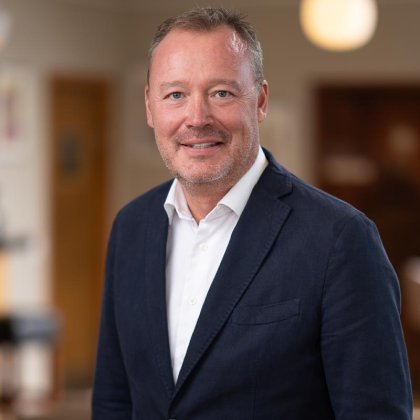Since January 1, 2024, Professor Mikael Lindström has served as Deputy President of KTH Royal Institute of Technology. In this role, he is, among other things, responsible for strategic research funding and strategic collaborations, including external funding, fundraising, infrastructure, and strategic partnerships.
He is a Professor of Pulp Technology, a field focused on the processes and technologies used to extract fibres from wood. These fibres are primarily used as raw materials in paper and carbon production, but also in products within the pharmaceutical and textile industries. His research involves modelling and simulation methods for analyzing various chemical pulp production processes. It also examines how different stages in the process influence the characteristics of the final product enabling efficient use of wood fibre.
Prof. Lindström holds a Master’s degree in Chemistry and Chemical Engineering from KTH (1992). He earned his PhD at KTH in 1997 and was awarded the title of Docent in 2003. After a successful period at Kvaerner Pulping AB in Karlstad (1997–2001), he returned to KTH, becoming Associate Professor in 2001 and Professor of Pulp Technology in 2008. He has also held several senior academic leadership roles, including Head of the Department of Fibre and Polymer Technology (2008–2011), Dean of the School of Chemical Science and Engineering (2012–2017), and Head of the School of Engineering Sciences in Chemistry, Biotechnology and Health (2018–2022).
During his time at Kvaerner Pulping AB, Prof. Lindström was responsible for process development and laboratory operations. His work there contributed to the development and implementation of an entirely new system for chemical pulp production, which is now used in more than 30 mills worldwide. This innovation, based on collaborative research with KTH and RISE Research Institutes of Sweden, resulted from long-term, goal-oriented efforts. For this work, he received the Kvaerner Innovation Silver Award and, in 2008, the Ekman Medal.
